Post Content
The advent of the Internet has led to a variety of odd body hygiene myths being spread around.
Tons of guys think that deodorant is supposed to make you sweat less, and even more believe that sweat just naturally smells terrible.
This can lead men to believe that antiperspirant is a useless product.
All these statements are false.
The truth is that deodorant vs antiperspirant are distinct products that should both be used if you want to maximize your hygiene and minimize the risk of embarrassing body odor or sweat stains.
And also many guys have asked me this question – “why do my armpits sweat so much even with deodorant”?
If you happen to be a natural sweaty man, then you must pay keen attention to this article as it will address sufficiently the difference between deodorant and antiperspirant.
In this guide, we’ll explain the primary differences between deodorant and antiperspirant, so you know the value of each.
We’ll also give you a thorough rundown of the causes of bad body odor, so you know why both products are so essential.
Let’s get into it!
Most Popular Products |
||
|---|---|---|
| "#1 Back Shaver" | "Best Bodywash" | "Top Body Acne Treatment" |
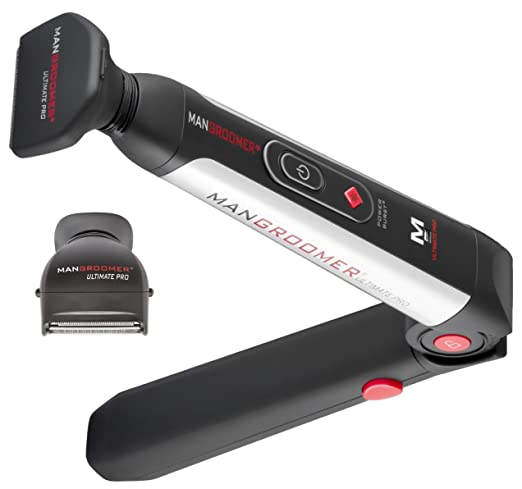 | 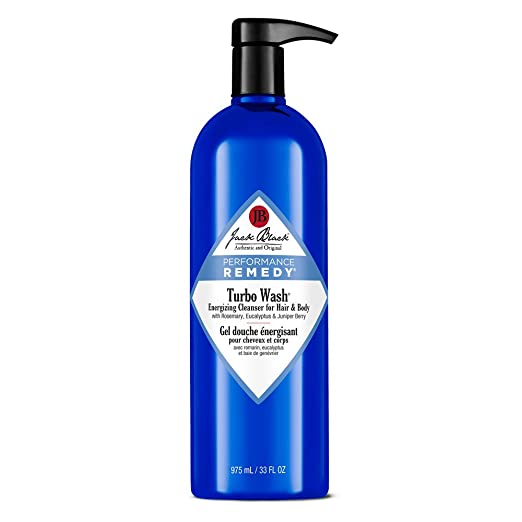 | 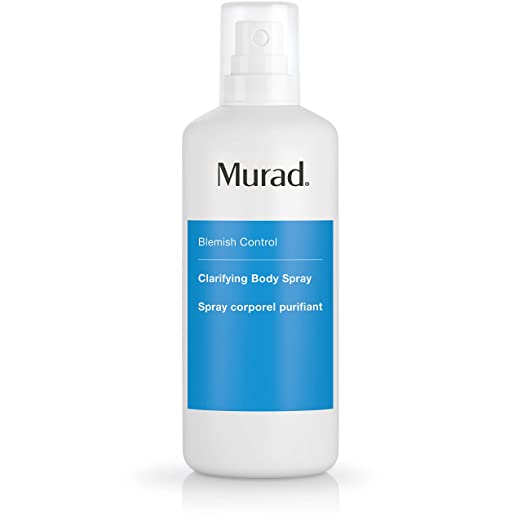 |
| Buy on Amazon | Buy on Amazon | Buy on Amazon |
Use the table of contents below to jump to the sections most important to you.
Post Content
![Deodorant Vs. Antiperspirant | Which is the Best in [year]? 1 Antiperspirant vs. Deodorant](https://www.primandprep.com/wp-content/uploads/2019/07/Antiperspirant-vs.-Deodorant-1024x621.jpg)
Deodorant vs Antiperspirant Infographic?
![Deodorant Vs. Antiperspirant | Which is the Best in [year]? 2 Antiperspirant vs Deodorant Infographic](https://mk0primandprepabb7sr.kinstacdn.com/wp-content/uploads/2019/08/Antiperspirants-vs-Deodorants-infographic-Final.jpg)
What Makes Us Sweat?
![Deodorant Vs. Antiperspirant | Which is the Best in [year]? 3 What Makes Us Sweat](https://mk0primandprepabb7sr.kinstacdn.com/wp-content/uploads/2019/07/What-Makes-Us-Sweat.jpg)
To understand the comparison between deodorant vs antiperspirant, we first must take a look at the production of sweat itself.
You see, human bodies typically have two kinds of sweat glands.
These are called eccrine or apocrine glands.
Eccrine Glands
Eccrine glands are responsible for the excretion of saltwater, or sweat, to cool you off when you become hot, are engaged in strenuous activities, or when the weather is generally warm.
The sweat response is a natural part of proper human function and shouldn’t be thought of as a negative.
In fact, our sweat responds to the most biologically advanced temperature regulation systems seen in living creatures across the world.
It allowed our ancestors to hunt on the warm plains and deserts of Africa without overheating.
As soon as the body texts that you are starting to overheat, it will begin to produce sweat to compensate.
The water that collects on the surface of your skin evaporates and takes some of the excess heat along with it.
Once you cool down, your sweat production will cease as your temperature returns to a more regular level.
Sweat lets us remain active and mobile even if it’s hot outside.
This is a fantastic ability that nonetheless provides an excellent location for bacteria to breed and grow.
However, sweat isn’t just produced when we are overly active.
In fact, most of us are sweating pretty consistently throughout the day.
Even becoming just a little overheated from talking or walking around is enough to make your underarms sweat to a minor degree.
This is exacerbated because your underarms are naturally a little warmer than the surface skin elsewhere on your body.
Because of this effect, you can’t just use deodorant when you have been working up a sweat through athletic activity or other heavy exertion.
You’ll likely need to use a deodorant product to maintain a pleasant body odor throughout the day.
It should be noted that sweat alone is not responsible for body odor.
It’s the conditions that it causes, that eventually lead to the familiar stink that everyone experiences at one time or another.
In a vacuum, sweat would actually just smell like regular water!
Apocrine Glands
Apocrine glands secrete minor amounts of various proteins and fats from your body.
This is partially due to a waste management cycle that helps rid your body of toxins and excess lipids.
But these excretions also provide the perfect tool for the bacteria that tends to collect on the surface of your skin and live inside small sweat pools or bubbles.
Kids don’t tend to have as much body odor or anybody odor compared to adults or teenagers since apocrine glands are developed after puberty.
What Causes Body Odor?
![Deodorant Vs. Antiperspirant | Which is the Best in [year]? 4 What Causes Body Odor](https://mk0primandprepabb7sr.kinstacdn.com/wp-content/uploads/2019/07/What-Causes-Body-Odor.jpg)
To understand what causes body odor, we must first examine a protein called keratin.
Keratin is a structural building block that’s responsible for the formation and stability of many types of organic molecules and compounds.
Your skin, for example, uses keratin to strengthen its cells and protect them from damage or stress.
Keratin is also used for making hair and nails.
Men and women naturally produce underarm hair, so already you can see how much of this protein is present in your armpits and all across your body.
When bacteria collect on your skin, they are provided with a rich diet of various lips and proteins in your sweat.
This extra energy allows them to reproduce and multiply.
But their multiplication alone is not responsible for typical bad body odor.
Instead, bacteria reproduction causes keratin to break down or decompose over time.
As the keratin dissolves, it gives off a terrible smell that most people recognize in this body.
This smell is combined with the smell of the reproducing bacteria and any saltwater remaining.
Together, they all make the familiar stench of body odor.
Your body odor is affected by several factors.
For instance, men with a fat or oil-rich diet will excrete more of these molecules in their sweat via their apocrine glands.
This provides the bacteria with even more fuel for reproducing and can lead them to develop an even worse stench than before.
On the flip side, men who have a diet consisting of fresh vegetables and oil-low foods will provide less fuel to the bacteria on their skin and thus will smell better as a result.
What Is an Antiperspirant?
![Deodorant Vs. Antiperspirant | Which is the Best in [year]? 5 What is an Antiperspirant](https://mk0primandprepabb7sr.kinstacdn.com/wp-content/uploads/2019/07/What-is-an-Antiperspirant.jpg)
When a deodorant vs antiperspirant comparison is done, an antiperspirant is distinct from a deodorant, and you can tell exactly what it’s supposed to do just by looking at the word.
It literally means “against sweat production.” Antiperspirant lower or eliminate your sweat production.
The overall goal of this effort is to reduce the environment that the bacteria love so much.
This will limit their reproductive ability and, hopefully, make your body smell less bad as a result.
However, many men sweat a lot and a sweating man will most likely be a smelling man.
This is why they use antiperspirants to reduce their sweat production for aesthetic or comfort reasons.
While most folks have bodies that only sweat when they become very overheated, there are plenty of people who have sweat glands that are a little overenthusiastic comparatively.
When it comes to deodorant vs antiperspirant, people who sweat a lot when they are not overheated or when they are nervous in social situations will often use antiperspirants to prevent sweat stains from showing up in their clothes and keep their bodies dry.
No one likes to feel wet or sticky, just from day-to-day activities.
Primarily, antiperspirants can be used to fight bad body odor or reduce sweat production for other reasons.
What Is Deodorant?
![Deodorant Vs. Antiperspirant | Which is the Best in [year]? 6 What is Deodorant](https://mk0primandprepabb7sr.kinstacdn.com/wp-content/uploads/2019/07/What-is-Deodorant.jpg)
Deodorant’s primary purpose is already known by anyone who doesn’t live under a rock, but you can tell from the word alone just like with antiperspirant.
In terms of deodorants vs antiperspirants, deodorants “de-odorize” or remove bad body odor.
Deodorants can do this in two primary ways: by covering up bad odor with a pleasant fragrance of their own or by attempting to eliminate or smother the bacteria causing the smell in the first place.
Because of these goals, many deodorant products are made with alcohol or use sodium chloride (also known as baking soda) to get rid of the bacteria prevent them from taking up your skin.
Alcohol and sodium chloride, along with any other anti-odor compounds, change the environment of your skin to make it too salty or acidic for bacteria to thrive.
Besides, there are synthetic ingredients such as EDTA, or ethylenediaminetetraacetic acid, that act as antimicrobial agents.
These directly impede bacteria’s ability to reproduce and grow.
Most of the best deodorant products have compounds that accomplish both goals.
They’ll eliminate bacteria and present a good fragrance at the same time to make the difference even more noticeable.
The best men’s deodorant for body odor is not necessarily the best men’s deodorant for sensitive skin because of the artificial components contained in these products.
However, certain deodorants don’t have any artificial fragrance added so you can use a cologne or body spray product without having to worry about the scents clashing.
How Does Antiperspirant Help?
![Deodorant Vs. Antiperspirant | Which is the Best in [year]? 7 How Does Antiperspirant Help](https://mk0primandprepabb7sr.kinstacdn.com/wp-content/uploads/2019/07/How-Does-Antiperspirant-Help.jpg)
Now that we know why sweat and bad body odor both come about, we can look at solutions.
Antiperspirants can be found as dedicated products, or in a combination of products that work alongside deodorants.
Antiperspirants will directly prevent your sweat glands from pushing sweat or oils to the surface of your skin when a comparison is done (deodorant vs antiperspirant).
Because antiperspirants interrupt a natural bodily process, they are technically classified as drugs by the FDA.
Most of the time, antiperspirants accomplish this act by physically blocking your plans using aluminum chloride, aluminum zirconium, or other synthetic compounds that have the same capability.
This may bring to mind an image of a small molecule physically impeding a sweat duct, but the truth is a little more complicated.
Basically, the antiperspirant ingredients will cause the electrolytes that are already present in sweat to merge and turn into a gel molecule.
This gel will then plug the gland directly and stop sweat from emerging from beneath your skin.
Some natural antiperspirants don’t use synthetic compounds or chemicals like aluminum zirconium to accomplish the same effect.
Men’s antiperspirants without aluminum will also reduce excessive sweating in men, however, these are arguably a little less directly effective than antiperspirants, which use the above artificial ingredients.
Antiperspirants are not permanent, and even synthetic compounds are eventually phased out by the skin and excreted as part of your sweat.
This means that they must be reapplied periodically, but this is good for your overall skin health, so your pores have a chance to breathe and flush themselves of natural dirt and toxins.
How Does Deodorant Help?
![Deodorant Vs. Antiperspirant | Which is the Best in [year]? 8 How Does Deodorant Help](https://mk0primandprepabb7sr.kinstacdn.com/wp-content/uploads/2019/07/How-Does-Deodorant-Help.jpg)
As described above, deodorant either covers up the bad odor with strong-smelling fragrances of its own or neutralizes the bacteria and prevents it from reproducing and consuming fuel, both of which cause bad odor to be emitted.
Even the best male deodorant brands may not last up to 48 hours.
Then the question still lingers – what are the best natural deodorants for men?
Since you can’t ever fully get rid of bacteria, deodorant is always only a temporary solution and has to be reapplied practically every day.
This isn’t necessarily a bad thing since it gives your skin pores a chance to be cleansed and operate without anything blocking them.
Does deodorant work better with shaved armpits?
Your sweat glands are conveniently positioned beneath your armpits.
However, removing or shaving armpit hair might improve the effectiveness of your deodorant, lowering underarm sweat and the appearance of sweat stains.
Top Rated Colognes by Women |
||
|---|---|---|
| "Montblanc Legend" | "Ck One" | "Nick Jonas by John Varvatos " |
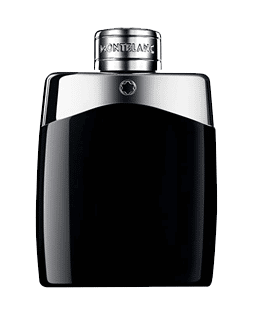 | 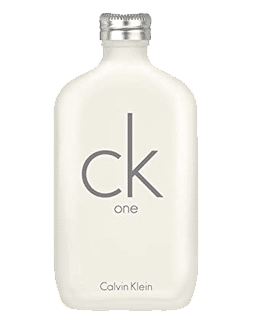 | 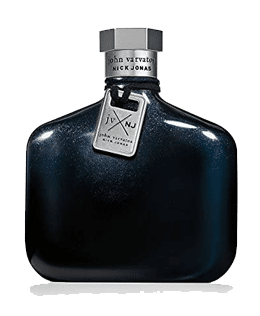 |
| Buy on Amazon | Buy on Amazon | Buy on Amazon |
Are There Any Health Risks for Deodorant vs Antiperspirant?
![Deodorant Vs. Antiperspirant | Which is the Best in [year]? 9 Are There Any Health Risks for Deodorant or Antiperspirant](https://mk0primandprepabb7sr.kinstacdn.com/wp-content/uploads/2019/07/Are-There-Any-Health-Risks-for-Deodorant-or-Antiperspirant.jpg)
When it comes to antiperspirants, several suspected health risks may be connected to the use of synthetic chemicals and compounds like aluminum.
Certain studies show a possible link between the development of certain cancers and the use of these products.
However, none of these studies show a full link.
The science is currently inconclusive, but that hasn’t stopped many men from transitioning to natural deodorant and antiperspirant products in the meantime.
Deodorant has some of the same health risks, but overall, deodorant products frequently use fewer synthetic compounds than antiperspirants.
This is because deodorants can be made more quickly.
Technically speaking, anything that you rub on your armpit skin that emits a pleasant fragrance can be called a deodorant.
When it comes to skin health, it’s been known for some time that natural products consistently have a leg up.
It’s never a bad idea to use a natural antiperspirant or deodorant product since these will have inherently fewer health risks and can usually accomplish the same effects as their big-brand, synthetic competitors.
However, natural deodorants and antiperspirants are sometimes more expensive per ounce as a result of the advanced ingredients or composition techniques needed to make them effective.
There are also clinical strength deodorants or prescription deodorants most of which are not the best smelling deodorant for men but are mostly the best aluminum-free men’s deodorant.
Overall, most men won’t have to worry about health risks when they apply antiperspirant or deodorant.
However, it’s a good idea to keep an eye on your skin if you do use a synthetic product to stay abreast of any developing health issues.
Also, many men who have skin that already becomes sensitive to certain compounds may find that synthetic deodorant and antiperspirant products cause irritation or inflammation.
Aluminum and baking soda, in particular, have a high likelihood of reducing allergic or irritating reactions in men with sensitive skin.
These men should look for products that use natural ingredients or a lot of smooth, soothing compounds to offset these effects.
They can also avoid deodorants and antiperspirants that include these ingredients entirely.
We’ve done a guide on the best deodorants for men with sensitive skin that you should check out if you have this issue.
Common Ingredients in Deodorant vs Antiperspirant
![Deodorant Vs. Antiperspirant | Which is the Best in [year]? 10 Common Ingredients in Antiperspirants and Deodorants](https://mk0primandprepabb7sr.kinstacdn.com/wp-content/uploads/2019/07/Common-Ingredients-in-Antiperspirants-and-Deodorants.jpg)
Let’s go through some common ingredients found in most deodorant vs antiperspirant products, as well as potential side effects.
Aluminum/Aluminum Chloride/Aluminum Zirconium
This ingredient is the most important in antiperspirant products.
It helps produce gel from your sweat, which clogs up your glands and prevents further sweat from coming onto your skin.
The best antiperspirant deodorant for men helps to control excessive sweating in men.
Baking Soda
Baking soda, otherwise known as sodium chloride, changes the pH balance of your skin and makes it impossible for bacteria to reproduce as a result reliably.
It’s great for eliminating bacteria and reducing body odor overall, but it can cause skin irritation in some men.
Triclosan
This compound is an antibacterial agent.
It’s present in a lot of prescription antiperspirant or antibacterial deodorant products to reduce the number of bacteria on the surface of your skin, making them ineffective at reproducing even if a little sweat still trickles through.
Some men find triclosan a little irritating to their skin.
Talc
This absorbent ingredient helps get rid of excess moisture and sweat.
However, some forms of Talc use asbestiform fibers, which are a known carcinogen.
Alcohol
You’ll find alcohol in a lot of antiperspirant products, as well as deodorants.
Alcohol absorbs sweat and helps deliver aluminum or other compounds to your sweat glands more quickly.
However, alcohol can dry out your skin and cause irritation, especially if you have sensitive skin already.
Triethanolamine Or Diethanolamine
These chemicals change the pH balance of your skin and help make the environment hostile to bacteria.
However, they can become toxic to your body, absorbs over a long period.
Only use antiperspirant products that contain these chemicals occasionally to be on the safe side.
Parabens
Finally, parabens are included in several deodorant vs antiperspirant products.
They help to ensure that your product will last for a long time, but they may be linked to certain types of cancer.
Types of Deodorants and Antiperspirants
![Deodorant Vs. Antiperspirant | Which is the Best in [year]? 11 Pick Right Body Lotion for Your Skin Type](https://mk0primandprepabb7sr.kinstacdn.com/wp-content/uploads/2019/05/Pick-Right-Body-Lotion-for-Your-Skin-Type.jpg)
Deodorants and antiperspirants are both found in in-person and online markets in a variety of different forms.
While they each will accomplish their primary goal (either deodorizing or reducing sweat emission), each specific type has a few advantages or disadvantages.
Stick or Roll-On
Stick deodorants and antiperspirants are by far the most common type you’ll see anywhere you go.
They’re the iconic type that is sold in a small, portable stick and usually have a hardtop, which allows you to layer on a thin amount of either product on the surface of your skin.
This top is worn over time and is often white or cream-colored.
This coloration can cause stick deodorant or antiperspirants to streak on your skin or stain your clothes if you’re not careful.
When roll-on deodorant vs spray deodorant is compared, the potential for overapplication in roll on is relatively high compared to spray deodorants.
However, stick products have several significant advantages that make them well worth your while.
For starters, stick deodorants and antiperspirants dry very quickly compared to the other types.
They’re great for applying in a hurry and can usually be used very discreetly.
This allows you to quickly put some deodorant on while at work if you forgot to do so at home; no one will be the wiser.
Stick deodorants and antiperspirants are also the strongest in terms of their fragrances when compared to the other types.
This is due to the kinds of scents that manufacturers can include in the formula when it’s packed down into a relatively strong state.
Pros
Cons
Spray
Spray deodorant vs antiperspirant products aren’t quite as conventional as stick varieties, but you should still find them in most stores.
The best antiperspirant spray for men uses aerosol cans to spray their solution right onto your skin.
This gives them the ability to drive very quickly and act just as fast.
It usually only takes seconds or a couple of minutes for the products to begin working.
The use of an aerosol can means that spray deodorants and antiperspirants are relatively noticeable so you can’t apply them discreetly.
But they are relatively portable, and since they can be put on really fast, they can be great for application in a hurry, like when you are late for work.
Spray deodorants and antiperspirants also have no chance of leaving a streak or stain on your armpit or clothes. It’s a little harder to overapply with these kinds of products.
The fragrances of a spray deodorant vs antiperspirant are usually reasonably steady, but they’re not quite as intense as many stick products.
Pros
Cons
Gel
Gel deodorants and antiperspirants are the most recent types to become common in online markets.
They make use of a softer and more liquid substance that is rubbed onto your armpit skin, for example, a soft solid deodorant.
It’s straightforward to smear and spread evenly and usually feels cool to the touch.
This also means that certain types can feel slimy or sticky, particularly if applied after there’s already some sweat collected on your skin.
It’s best to apply gel deodorant or antiperspirant before you start to sweat at all to avoid this issue.
Gel products are also typically transparent colored, so there’s no chance for staining or streaking.
Gel deodorants and antiperspirants usually take a few minutes to fully dry, so keep this in mind when putting it on beneath the fancy shirt.
It’ll be a short while before it’s totally safe to move your arms to their full mobility without making a wet spot on the fabric covering your armpit.
In terms of fragrance, deodorant and antiperspirant gel products are reasonably reliable but, like spray products, aren’t quite as intense as stick varieties.
Pros
Cons
Wipe
Wipes are a kind of antiperspirant product; you can’t really find deodorant wipes to the same degree.
Antiperspirant wipes have the benefit of being disposable and fast to apply, as well as removing any collected sweat that might be currently on your skin.
They’re great for short-term solutions when you sweated up a storm and still need to do stuff with your day.
For instance, antiperspirant wipes are fantastic for wiping down your underarms after you run to the office or bike to work.
They’ll simultaneously prevent you from sweating while your body cools down and get rid of any sweat that may have been emitted already.
However, their packages last for a much shorter time than the other types as each white has to be discarded after use.
This means that they are usually a weak long-term antiperspirant solution unless you are comfortable spending a relatively high amount of money.
Pros
Cons
Deodorant Vs Antiperspirant: Which Kind Is Right for You?
![Deodorant Vs. Antiperspirant | Which is the Best in [year]? 12 What Kinds of Fragrances Should You Use](https://mk0primandprepabb7sr.kinstacdn.com/wp-content/uploads/2019/07/What-Kinds-of-Fragrances-Should-You-Use.jpg)
There isn’t a single type of deodorant vs antiperspirant product that’s perfect for all men.
The ideal choice will depend on your circumstances and the level of body odor that you frequently emit.
While the option is totally yours, below you can find our recommendations based on some typical cases.
It may also be a good idea to try several different types in your search for the ideal deodorant vs antiperspirant product.
We put together an excellent guide on the best deodorants for men and another one of the best antiperspirants for men; be sure to check them out if you want some handy pointers that you can use to locate the best product.
Antiperspirant Vs. Deodorant
![Deodorant Vs. Antiperspirant | Which is the Best in [year]? 13 antiperspirant vs deodorant](https://mk0primandprepabb7sr.kinstacdn.com/wp-content/uploads/2019/07/antiperspirant-vs-deodorant.jpg)
So, which one should you use when it comes time to choose?
The truth is that both antiperspirant and deodorant have a place in any man’s morning hygiene routine.
Both products do separate things that contribute to holistic hygiene.
Men should use antiperspirants to limit the amount they sweat and make their bacteria produce less of a stink.
But they should also use deodorant to combat the stink that they already have and prevent their body odor from rising to a noticeable level.
All it takes is one whiff of someone’s bad body odor, and you immediately recoil and want to step away.
If you don’t want this to happen to you when talking to a coworker or someone you think is attractive, then you need to have deodorant working all the time.
Since there are so many combination products that use both deodorizing and antiperspirant ingredients, there’s no excuse only to use one or the other.
Combination Is Key
![Deodorant Vs. Antiperspirant | Which is the Best in [year]? 14 Combination is Key](https://www.primandprep.com/wp-content/uploads/2019/07/Combination-is-Key-1024x621.jpg)
When it comes to deodorant vs antiperspirant, combination products are an excellent choice for men who like convenience.
There are tons of great products to choose from that come in stick or gel format, for instance, Gillette antiperspirant deodorant clear gel, gillette deodorant, and oars alps deodorant.
This can reduce the level at which you sweat and which cover up bad body odor.
However, many combination products are a little less directly effective at either task than dedicated deodorants or antiperspirants.
This may require a separate product for each need.
Even if you don’t want to use a combination product, you can and should select a dedicated antiperspirant and dedicated deodorant for everyday use.
The deodorant will likely be used every day while the antiperspirant should only be used if you’re going to sweat a lot throughout the following 24 hours.
Is Dr. Squatch Deodorant good?
Dr. Squatch is a natural deodorant is made up of a proprietary blend of Odor-SquatchingTM ingredients like arrowroot powder.
This to help absorb sweat, probiotics to help prevent the growth of odor-causing bacteria, and charcoal powder, a natural deodorizer to block odor, rather than aluminum and other harsh synthetic ingredients.
When Should You Use Deodorant vs Antiperspirant?
![Deodorant Vs. Antiperspirant | Which is the Best in [year]? 15 When Should You Use Deodorant and Antiperspirant](https://mk0primandprepabb7sr.kinstacdn.com/wp-content/uploads/2019/07/When-Should-You-Use-Deodorant-and-Antiperspirant.jpg)
The best time to use deodorant and antiperspirant is at the beginning of your day.
The vast majority of both types of products at a stable 24-hour period where they can effectively protect you from both sweat and bad body odor at the same time.
However, you shouldn’t apply either of these products before you take your shower.
If you take evening showers, this is less of an issue.
But if you take morning showers, there’s a high likelihood that your washing routine will end up scrubbing away any applied or remaining deodorant or antiperspirant that’s on your skin.
Therefore, applying either of these products and taking a shower soon after is a waste of time.
You should use deodorant and antiperspirant immediately after you’ve showered or right before you put on clothes.
This gives both products a chance to settle into your skin and begin their work before anyone can notice bad body odor or your body can really start to sweat.
When it comes to reapplication, you should usually feel free to do so as required.
While men with sensitive skin might need to be a little more sparing with their application limits, most guys should apply deodorant as soon as they detected a hint of bad body odor.
There’s no connection to adverse health risks from using too much deodorant vs antiperspirant, although some deodorant types can cause streaking or staining if you overapply.
Deodorant Vs Antiperspirant: What Kinds of Fragrances Should You Use?
![Deodorant Vs. Antiperspirant | Which is the Best in [year]? 12 What Kinds of Fragrances Should You Use](https://mk0primandprepabb7sr.kinstacdn.com/wp-content/uploads/2019/07/What-Kinds-of-Fragrances-Should-You-Use.jpg)
This is another great question that ultimately boils down to personal preference.
Many masculine-themed deodorant vs antiperspirant products will rely on a plethora of tried-and-true male-oriented scents, such as cedarwood, sandalwood, or pine.
There is also men’s unscented antiperspirant that is made mainly from natural ingredients rather than chemical compounds.
However, other scents can be easily associated with masculinity and give you a little unique flavor amongst all the other guys.
Things like citrus and certain berries are gaining popularity, and you can never go wrong with deodorants that hold a fresh, sea breeze kind of fragrance that reminds people of the beach.
Overall, you shouldn’t worry too much about the type of fragrance included with your deodorant vs antiperspirant product.
It all boils down to personal preference.
However, if you want to use a cologne or body spray with your deodorant or antiperspirant, be sure to find a product that lacks a fragrance entirely.
Deodorant Vs Antiperspirant: Conclusion
Overall, both deodorant and antiperspirant are worthy of a spot in your bathroom cabinet.
Men who are focused on achieving the most encompassing hygiene will want to use both to ensure that they always smell great and never leave sweat stains on their nice shirts.
When you see a man sweating or a guy sweating so much you often wonder why.
They may use the best spray deodorant for men or the best body spray for men, but it won’t cut it unless they use antiperspirant too to reduce excessive sweating.

Hi,I use a LOT of deoderant. I mean I use like a stick,About,thirtyfive to forty times,after each shower,And after each time of use,I began to have severe under arm order. Then I tried-Spray deoderant,A LOT of it. And it last for ONLY a couple of hour’s,Then the severe under arm oder come’s right back. And on top of that,By using the stick to much,I wound up becoming verry injured in mu upper chest area,Where some of that extra deoderant spread to and by my Dr. had to be placed on a cream type medicine,Hydrocrtisone Cream,To remoove the severe rash the stick deoderant had caused,Due to me using to much. Becouse If I had only swiped myself once or twice the deoderant would not have worked. So bottom line. Can you PLEASE give me the name of a Deoderant,NOT a Roll on,But a Sensitive Deoderant for men that will remoove the oder, Smell’s fresh,And is sensitive,and will last. God bless,And thank you for your cooperation.Sincerly,Homer L. Smith
Hi Homer, I’m sorry to hear about your struggle with deodorant. But don’t worry, we have a variety of buyer’s guides that will help you out:
1. Best Deodorants for Men With Sensitive Skin
2. Best Antiperspirants for Men
3. Best Natural Deodorants for Men
I have anxiety so if I’m put in a social situation I’m not used to or with someone that I… erm… have feelings for, it doesn’t matter the amount or type of deodorant, I will only stop sweating if I’m really cold, and even then…
Ive been taking deordarent sticks for the last 7 years and let me tell ya oh jolly hoo it works like a charm